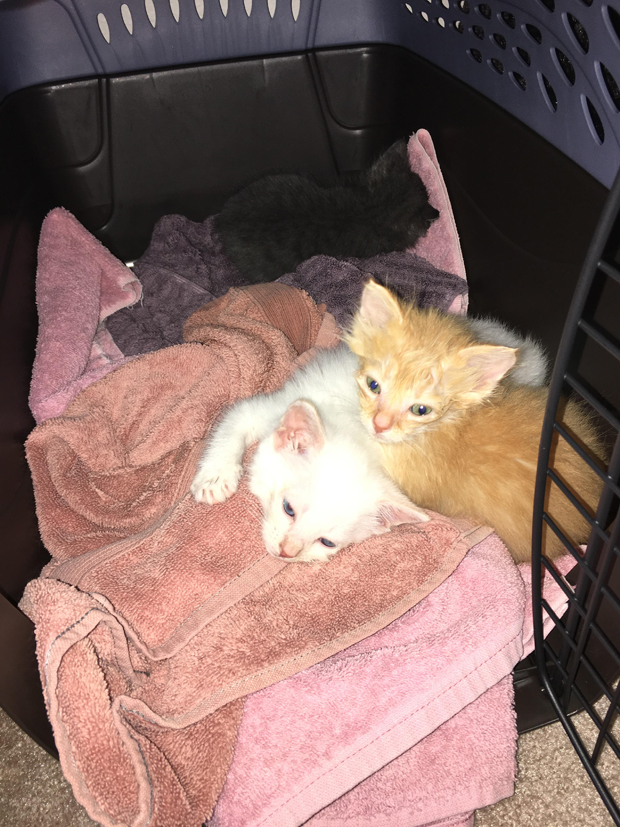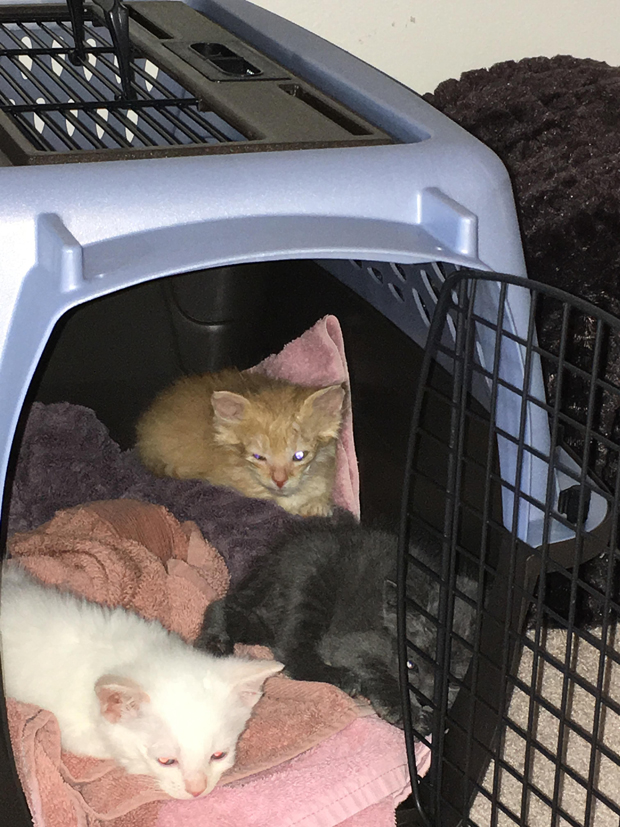By Dr. Meredith Kennedy, DVM, Long Beach Animal Hospital (LBAH)

All photos courtesy of LBAH.
Editor’s note: Kitten season is in full force, and the shelters are receiving newborns by the hundreds and thousands. Rescues scramble to find bottle feeders; Long Beach’s The Little Lion Foundation and Helen Sanders CatPAWS have joined together for free hour-long newborn-feeding workshops and Kitten Kit distributions.
If you’re anywhere near involved in animal rescue, every other Facebook post you get is about finding kittens. Kelly McHugh Lopes of the small rescue group Wrigley kittens posted the following: “I try to keep things happy and fun here, but this is the truth behind rescue. I get dozens of requests every week, and Wrigley Kittens is very small, something I do with a little help from my friends in my “off time” (which becomes ‘on time’ during kitten season). I can’t even imagine what the bigger rescuers are dealing with on a daily basis.”
“A little help from my friends” is what any size rescue appreciates. For the next three weeks, Dr. Kennedy will chronicle her experience as a kitten rescuer. It’s hoped that you’ll be inspired, if you aren’t already.
It’s spring and love is in the air, so there are little kittens everywhere. Unfortunately, some of them end up orphaned, so they’re brought in to animal shelters and veterinary hospitals.
My mom and I love raising these little orphans, but it takes time and commitment. These three little boys, Loki, Levi and Lilo, were bottle-fed from a very young age, but at 4 weeks old, they’re now big enough to come home to my place for the next month.

The time for socializing kittens is between the ages of 4 and 8 weeks. What happens during this time shapes the adult cats they will become. Socializing with people makes them friendly and relaxed with humans, and socializing with one another makes them good pets.
During this time, all the roughhousing they do will teach them to “play nice,” something a solo bottle-fed baby never learns well! Levi, bottle-fed from 2 days old, has been put together with foster brothers Loki and Lilo so that he can learn to be a good kitty—they will pounce on him when he gets too rough! Solo orphans don’t learn to “pull their punches” and often end up being very aggressive as adult cats. Levi is thrilled to have two brothers to play with.
In preparation for homecoming, all of the supplies the little kitties will need are kept in a small area, all close together so they won’t have a hard time finding everything: food, water, litter box (very important!), kitty crate (more on this later) and a climbing tree. The care and training they’ll be getting (yes, training!) are designed to mimic natural behavior as much as possible. This helps the kittens understand their world and to become conditioned to the behaviors we want to cultivate: clean litter-box habits, coming when called, taking medication, not destroying furniture, staying inside, traveling in a carrier and getting their claws trimmed. Over the next few weeks. we’ll see how we hope to accomplish these behaviors and how Loki, Levi and Lilo do with their “Kitty School”!

